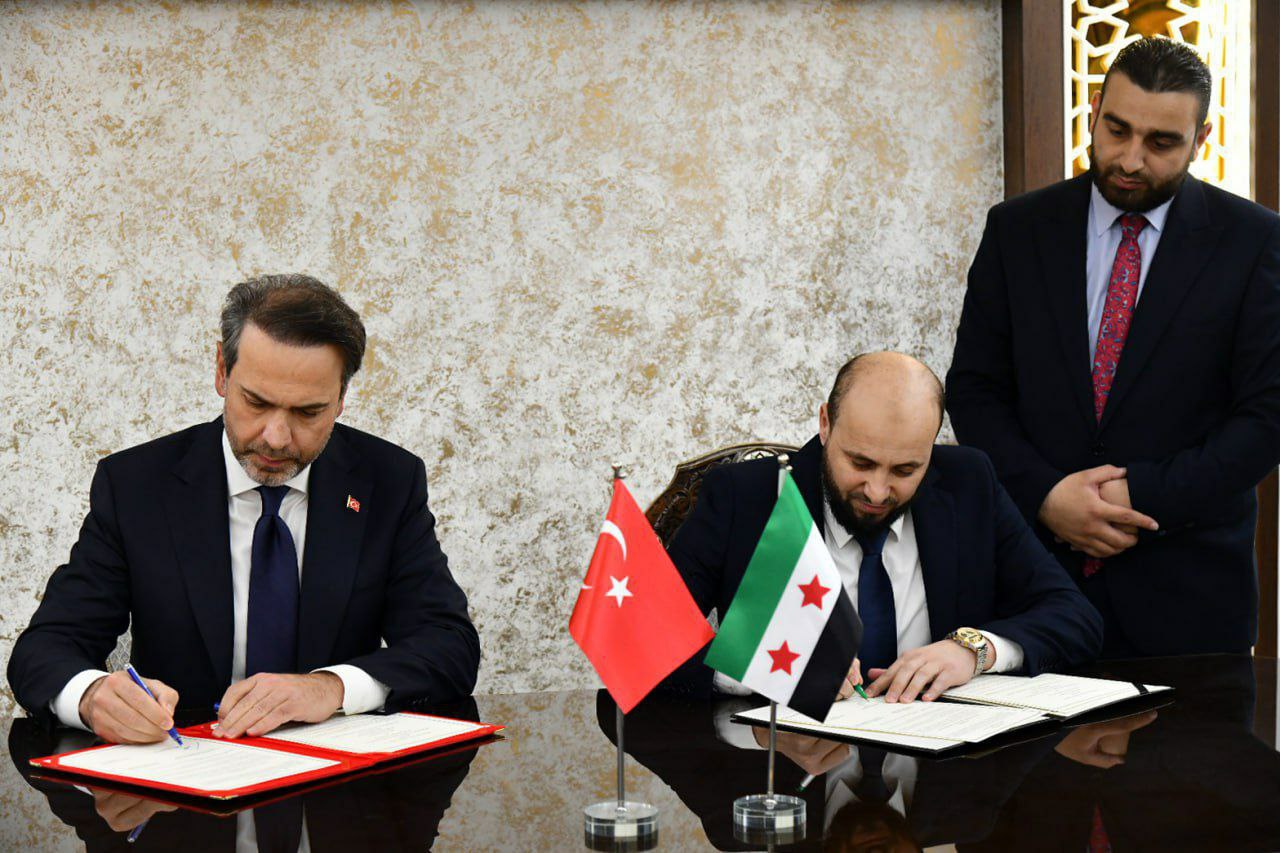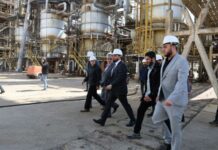
Syrian-Turkish relations are witnessing a notable development in the energy sector, especially after the fall of the Assad regime and the establishment of a new administration in Syria, which is making efforts to provide a glimmer of hope amid the darkness that Syrians have endured for years.
Through cooperation in the energy sector the two countries agreed to establish a 400 kV electricity line connecting Reyhanli (in Turkey’s Hatay governorate) to Harem (in Syria’s Idlib governorate), in addition to creating a natural gas line between Kilis and Aleppo to supply six million cubic meters of gas daily to Syrian power generation stations.
Turkish Minister of Energy Alparslan Bayraktar visited Damascus to develop partnerships and enhance cooperation in the energy sector. In meetings with Syrian Minister of Energy Muhammad al-Bashir both sides discussed ways to expand bilateral cooperation in various aspects of the energy sector.
Investment and Reconstruction
Minister Bashir, confirmed with his Turkish counterpart, that they are working to complete the procedures for connecting the 400 kV line that will link Turkey to Syria, and they expect to activate the electrical connection between Syria and Turkey by the end of the year.
Turkish Energy Minister Bayraktar stated that “we have started supplying Syria with two billion cubic meters of gas to generate 1300 megawatts of electricity. Things are moving in a positive direction, and the projects focus on providing Syria with capabilities and advancing efforts to lift sanctions.”
He confirmed that major companies that previously operated in Syria contacted him, expressing their full readiness to invest again, stressing that the projects they are undertaking, in addition to lifting sanctions, will bring investment to Syria for reconstruction.
Expected Goals and Impacts
One of the key expected goals is to improve the energy infrastructure, as Syria suffers from deteriorating electrical networks (which have a lifespan of 25 years). Such improvements will increase the hours of available electricity, which is expected to rise from the current four hours a day to eight hours, especially with support from Turkish gas and electricity projects.
Providing energy could contribute to boosting the economy, restarting factories, and supplying water for agriculture, thereby creating job opportunities and reducing reliance on private generators.
These agreements reflect a shift in Syrian policy towards strengthening relations with Turkey as a strategic partner, focusing on rebuilding infrastructure and securing sustainable energy sources. However, security and economic challenges remain major obstacles to achieving these goals.








